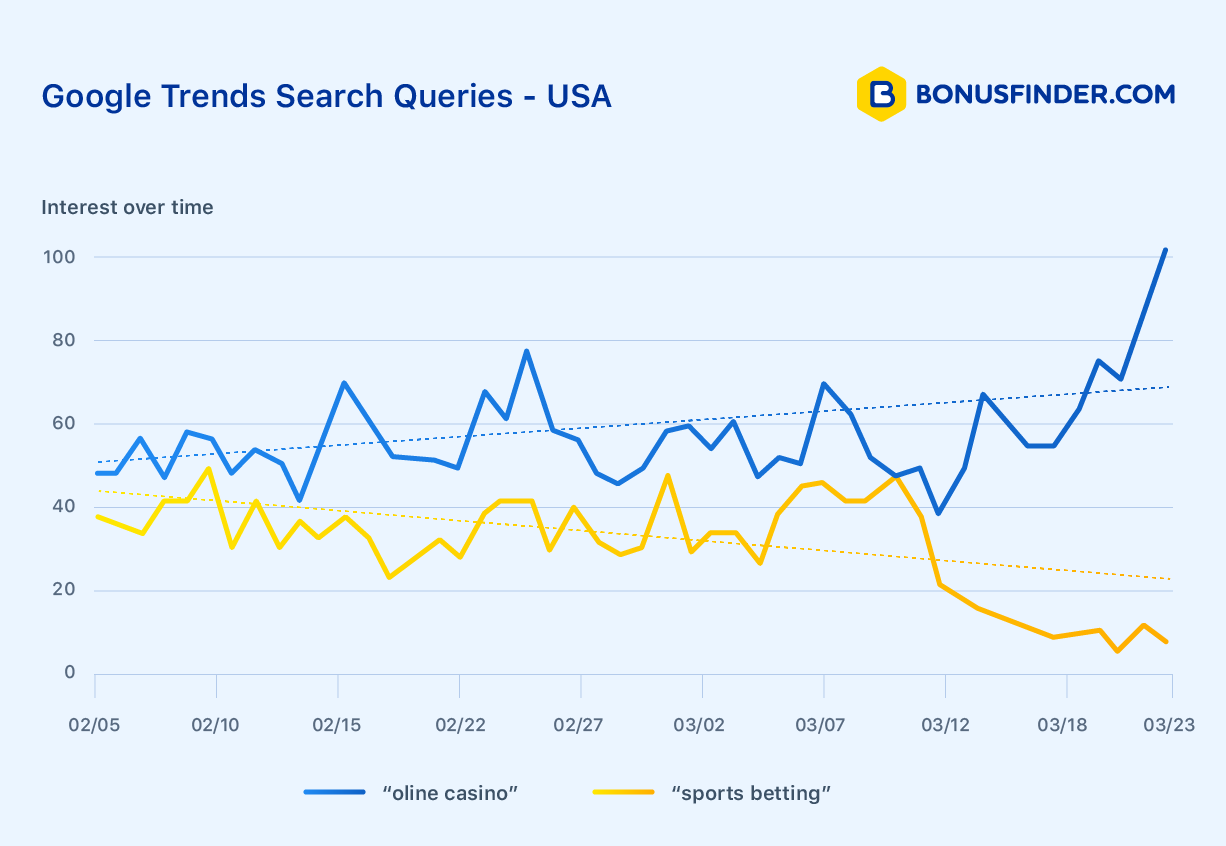
Land-based closures spark 100% rise in US ‘online casino’ searches – BonusFinder research
Wake up call for lawmakers to build on state-by-state regulatory success with fast-track online casino legislation
The closure of major US land-based gaming venues and cancellation of live sport has sparked a 100% rise in internet searches for ‘online casino’ across North America, BonusFinder.com research can reveal.
The research was carried out using Google Trends from February to the end of March this year and uncovered a sharp spike in players searching for ‘online casino’ following land-based venues switching off slot machines and sports events being rescheduled.
The tipping point came on 12th March when more US players searched for ‘online casino’ than ‘sports betting’ with numbers doubling in the following two weeks.
Since the repeal of PASPA in August 2018, 17 US states have regulated sports betting with only five, including Delaware, Michigan, Nevada, New Jersey and Pennsylvania opening up igaming.
Combined sports betting and online casino ‘handle’ across those US States was more than $1.7 billion in February 2020.
Sportsbook handle is expected to dramatically shrink in March and beyond with operators and states urgently looking to mitigate losses and make up shortfalls. As a result of the surge in online casino interest, lawmakers in states that have already regulated betting could consider fast-tracking igaming.
According to VIXIO GamblingCompliance, New Jersey alone generated $482.7 million in igaming Gross Gaming Revenue (GGR) in 2019 and $52m in February 2020.
Industry trade group, iDevelopment & Economic Association, for example, is already urging states to allow online casino games to replace disappearing revenue, including exploring how governors can use emergency powers to quickly allow online casinos to operate.
Fintan Costello, Managing Director, Bonusfinder.com, said: “The five states that have opened igaming are seeing month-on-month revenue rises with New Jersey leading the way. It has a robust and responsible framework in place to protect players and has shown that online and offline casinos can operate together within the same territory and consistently generate very healthy returns.”
“This is a wake-up call for the 12 states that have already established an online sports betting regime. They should take note of the enormous interest in online casino from players and use this momentum to legislate igaming before we start seeing players turning to unlicensed, offshore sites and the black market.
“The demand will only continue to increase as this unprecedented situation continues, therefore now is the time to focus on providing best-in-class, regulated real-money online casino games that players can enjoy responsibly and that can also help state governments make up revenue shortfalls.”
Last month research carried out by BonusFinder.com monitoring the Swedish market uncovered a spike in Swedish players searching for a basket of black-market keywords. Almost a third of Swedish online casino players are searching online for ‘unlicensed casinos’, with growing numbers turning to black-market brands due to the market’s restrictive gaming regulations.










